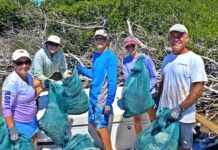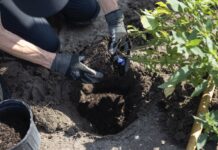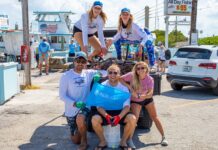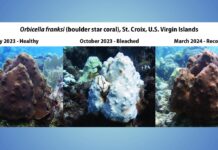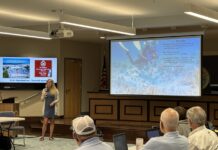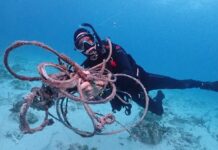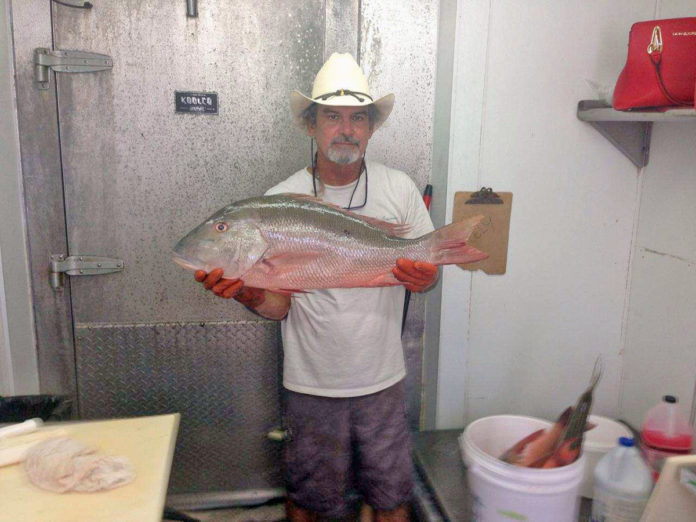
“To be a good fisherman, you must be a good observer.” Those words changed my life, as slight variations in tides, barometers, wind direction and moon phases can mean the difference between success and failure.
I have always been a conservationist. I chose to be a harvester as a career, learning lessons from local mentors: Never overfish a spot, let small fish grow, take responsibility for what supports you and watch every sunset as if it were your last.
I own my own boat and have 11 federal permits to fish. For this privilege, my boat is tracked by government satellite, a vessel monitoring system and a $4,000 GPS that fishery managers in Tallahassee monitor. I must log in to leave the dock. It is Big Brother.
In 1990, Monroe County voters opposed the creation of the Florida Keys National Marine Sanctuary. The public was told how the sanctuary would improve everything: fishing, corals, channel markers and water quality. The federal government would save us from ourselves, but they were really here to help themselves.
Many prominent fishermen tried to work with the sanctuary for a balanced approach and were rejected. Healthy corals, abundant fish and migratory patterns did not fit the agenda. Officials did listen to the select few who supported their artificial crisis. Areas were closed with no results, despite promises of an abundance of fish overflowing from the closed areas. But only lionfish prospered. The feds said they needed more areas to close, and that “user groups would adjust.” Personally, I have been “adjusted” too many times.
Soon, the sanctuary showed its distrust of locals and spent $1 million on two military-grade Puma AE surveillance drones to monitor the public boaters. But the feds didn’t check the state laws, and thanks to the Florida Senate’s Unauthorized Surveillance Act, that use was stopped. Again, Big Brother.
Other issues such as lobster mini-season were contradicted by (first sanctuary superintendent) Billy Causey’s support of it, even though his own biologists said, “More environmental damage occurs in that week than the entire rest of the year.”
I observed that meetings and locations were inconvenient for the public to attend. I protested a vote due to lack of public attendance and was told by the chairman, “Absence is consent.” I said that those absent were at work, and I observed that the sanctuary didn’t want the public to attend or comment. It was management’s policy to limit participation through scheduling.
I’ve observed too many backroom deals, such as the proposal in this new management plan to limit reef access in some areas to Blue Star-certified dive and snorkel operators.
There is no “misinterpretation” as Ms. Fangman has stated. It is meant exactly as written and despite public outcry over the proposal, the sanctuary refuses to amend or rewrite it, so it could become law as written.
The plan creates a registry of charter vessels. The term “carrying capacity” is most important, as it would allow the sanctuary to determine how many people and which vessels visit that location. Who will get more consideration, a 150-passenger catamaran company that donates large sums of money to the sanctuary or a small six-pack charter boat?
How will that be controlled? Big brother knows: Vessel monitoring systems at $4,000 each.
A 150-passenger catamaran company can afford that, but a small operator can’t.
Our biggest problem is water quality from upstream. All the closures in the world will not cure that problem. In the past two weeks, Gov. Ron DeSantis signed five bills to restore Everglades flow and stop sources of pollution affecting the Keys. He also has veto power over the sanctuary. He can stop the Restoration Blueprint plan with a pen. Call him at 850-488-7146.
Become an activist. I am. I put up signs advertising meetings and I speak out at those meetings.
You are activists already and don’t realize it. I see you out on the water. You pick up trash at our sandbars. You stop your boat to grab that plastic bag. You respect fishery rules, and most important of all, you teach that respect to our children. We are the example. We are the stewards of our Keys. These are our waters. We know what to do, and we don’t need the sanctuary’s help or interference. Help.
“Lobster Lee” Starling
Key West commercial fisherman


















